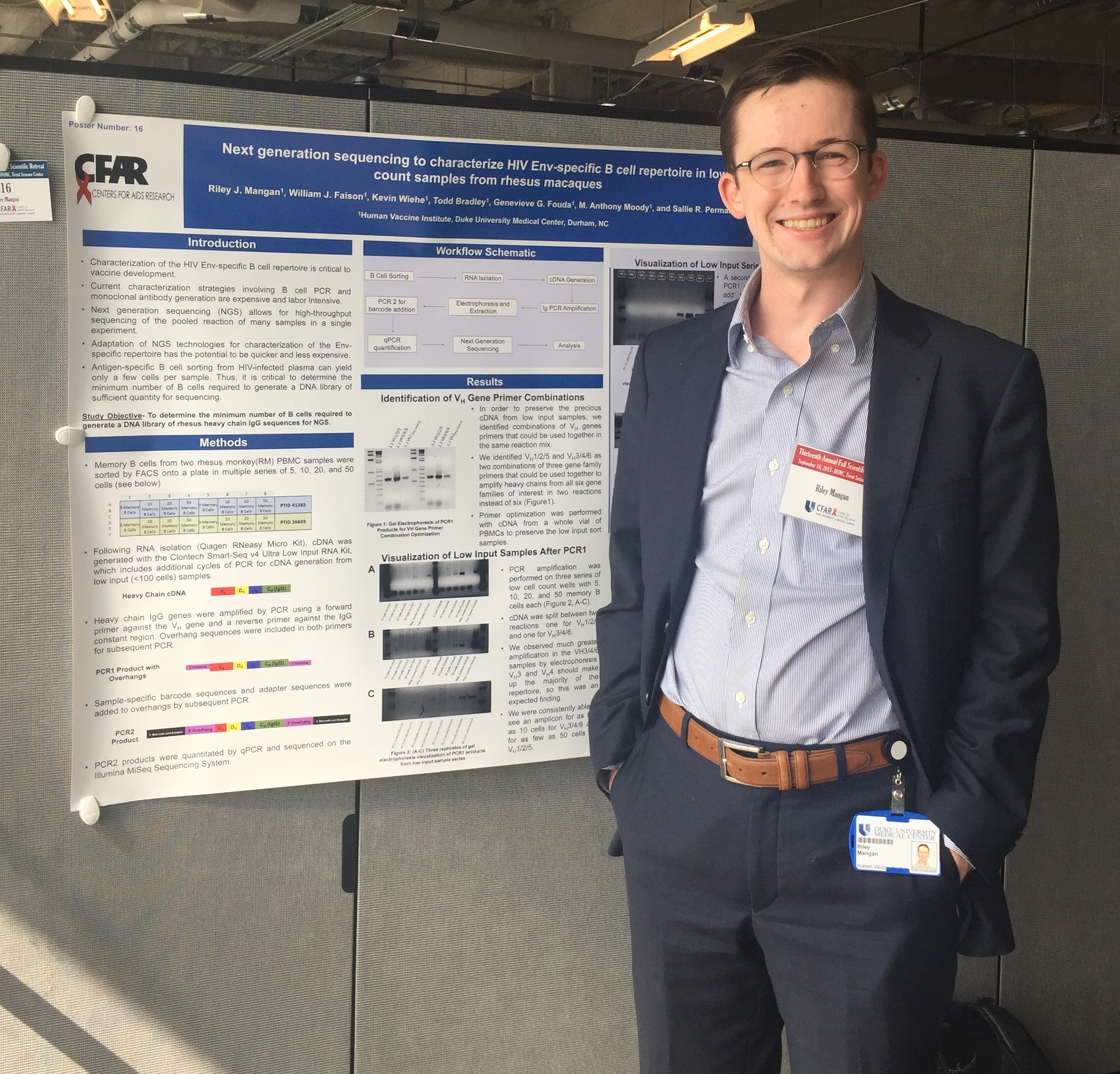
In the last six million years, humans and dramatically diverged from our recent great ape ancestors to acquire remarkable new phenotypes, including bipedal locomotion and the development of the human brain. New advances in genomics and population genetics provide new avenues to explore how changes in our genome during that time have caused those changes to come about.
Here are the Main Questions : What makes us human, and how did we get here? How did rapid changes in our genome change our susceptibility to diseases?
Riley Mangan was born in 1993 in Libertyville, Illinois. After graduating from Prospect High School in the suburbs of Chicago, he attended Davidson College in Davidson, North Carolina. As an undergraduatee, he conducted research in the lab of Dr. Rachid El Bejjani to study the molecular mechanisms by which deletion of the gene rab-6.2 in C. elegans induced a deficiency in epidermis integrity. In the summers, he also worked in the lab of Dr. Paul Grippo, first at Northwestern University, and later when his lab moved to the University of Illinois at Chicago. In the Grippo lab, Riley investigated the contribution of TGF-β signaling to tumor progression in pancreatic ductal adenocarcinoma. During these years, Riley developed a passionate interest in research science.
After graduating with a Bachelor's Degree in Biology in 2016, Riley began his professional career as a research technician in the lab of Dr. Sallie R. Permar at the Duke Human Vaccine Institute. There he studied a variety of topics related to the development of vaccines to prevent pediatric viral infections, specifically for HIV and CMV. In this position, Riley authored a study on the molecular mechanisms by which the extracellular matrix protein Tenascin-C blocks the ability of HIV to enter target cells.
In 2018, Riley matriculated in the Ph.D. program in Cell and Molecular Biology at Duke University and joined the lab of Dr. Craig B. Lowe in the department of Molecular Genetics and Microbiology. In this lab, Riley sought to understand the genetic architecture of human evolutionary change and disease. He earned his doctorate in 2023.
In 2023, Riley joined the Computation Biology Group in the Computer Science and Artificial Intelligence Laboratory at the Massachusetts Institute of Technology. Under the mentorship of Dr. Manolis Kellis, Riley uses deep learning models to interpret how genetic changes that have accumulated on the human lineage have impacted human-specific transcriptional and epigenomic phenotypes.